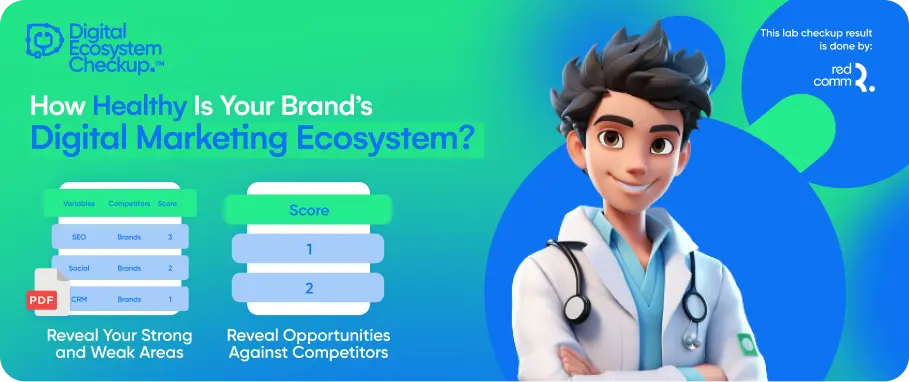Artificial Intelligence, the game-changer that is reshaping how businesses connect with their audience and elevate their marketing strategies.
Unveiling 4 Expert Tips for Harnessing AI in 2024 to Elevate Your Marketing Strategy

As we step into 2024, harnessing the potential of AI is not just an option, it's a necessity.
Over the last decade, AI has become the buzzword in marketing circles, and for a good reason.
Recent reports indicate a staggering 27% increase in companies integrating AI and machine learning into their marketing toolkits.
This surge is a testament to the transformative impact AI can have on modern marketing strategies.
In this guide, we'll explore the ins and outs of incorporating AI into your marketing arsenal, unraveling the secrets to boosting your business.
1. Data Analytics for Decision Making And Forecasting Sales
AI's prowess in data analytics is a game-changer for marketers drowning in a sea of information.
It effortlessly collects and sifts through vast amounts of data from various campaigns, distilling key insights that inform strategic decision-making.
Predicting campaign outcomes becomes second nature for AI as it taps into historical data, including consumer engagement metrics, purchase patterns, time-on-page, and email opens.
The result? A streamlined approach to strategizing and developing marketing assets, saving valuable time and resources
Forecasting sales might seem more aligned with the sales department, but AI has a pivotal role to play in providing marketers with valuable insights into the predicted outcomes of their campaigns.
Armed with this foresight, marketers can fine-tune their strategies, ensuring they not only capture attention but also translate it into tangible sales and Return on Investment (ROI).
The integration of AI in forecasting empowers marketers to move beyond conjectures and gut feelings, basing decisions on data-driven predictions.
This shift promises a more strategic and effective approach to campaign planning and execution.
2. Content Generation
AI plays a crucial role in content generation by assisting in the creation of captions, social media posts, email subject lines, and blog copy.
While AI can generate articles on specific topics, it's important to note that most AI-generated content requires additional refinement before it is suitable for publication.
Many marketers leverage generative AI to recommend content ideas and produce parts of an article. Following this, they conduct fact-checks, edits, and adjustments to ensure that the AI-generated writing aligns with human language and tone.
The optimal use of AI in content generation is as a starting point, allowing marketers to produce high-quality content more efficiently by incorporating insights from AI.
Imagine a marketing approach that speaks directly to each customer's preferences and behavior. AI makes this a reality through content personalization.
By analyzing user data, AI dynamically adjusts marketing assets such as web pages, social media posts, and emails, creating a bespoke experience for each individual.
A standout tool in this realm is 6Sense. This AI-powered solution digs deep into intent data, unveiling who in your audience is on the verge of making a purchase.
Armed with this knowledge, you can tailor your marketing approach, providing a personalized experience that resonates with potential customers.
3. Automated Email Marketing Campaigns
Email marketing remains a cornerstone of digital communication, and AI is injecting a fresh wave of innovation into this time-tested strategy.
While automated email marketing has been in play for years, AI tools now take it a step further by crafting more compelling content and gaining insights into your audience's behavior.
The ultimate goal is to liberate your marketers from the shackles of extensive research and brainstorming, allowing them to concentrate on crafting campaigns that resonate with your audience.
As AI continues to evolve, the significance of automated email marketing software in your marketing arsenal only intensifies.
AI technology is also instrumental in media buying, predicting the most effective ad and media placements to target specific audiences and maximize Return on Investment (ROI).
For those using Google Ads, AI is already integrated into the auction process. Additionally, AI can be utilized to craft compelling ad copy swiftly.
Tools like Campaign Assistant use AI to generate ad copy for platforms such as Google, Facebook, and LinkedIn with minimal input, expediting the creative process.
4. Elevate SEO Game and Customer Experience
Search Engine Optimization remains a cornerstone of online visibility, and AI is amplifying its impact.
AI algorithms have the ability to delve into website traffic, pinpoint keywords crucial for search engine rankings, and monitor competitors' moves.
This data-driven approach enables marketers to optimize content effectively, ensuring it aligns with audience preferences and search engine algorithms.
Moreover, AI-powered tools provide invaluable insights into audience behavior, allowing marketers to refine their strategies and deliver content that resonates.
By marrying creativity with data-driven decisions, marketers can stay ahead in the ever-evolving landscape of SEO.
In the landscape of modern marketing, customer experience reigns supreme. Here, AI emerges as a key ally, enabling marketers to craft personalized, delightful experiences that foster customer loyalty and retention.
By leveraging AI capabilities, marketers can gain a deeper understanding of their audience, tailoring content to match preferences and delivering a seamless and engaging journey.
From personalized recommendations to interactive content, AI-driven enhancements are redefining the way brands connect with their audience.
In an era where consumers crave personalized interactions, incorporating AI into your customer experience strategy is no longer a luxury but a necessity.
DISCOVER MORE OF WHAT MATTERS TO YOU
RELATED TOPIC



